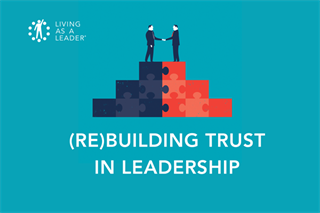
Trust impacts us 24/7, 365 days a year. It undergirds and affects the quality of every relationship.
Trusting someone means that you think they are reliable, you have confidence in them and you feel safe with them, both physically and emotionally. Trust means confidence.
The opposite of trust, distrust, means suspicion.
One of the most horrific stories in the current news is the loss of over 350 lives due to two plane crashes in five months.
This is a terrible tragedy beyond what most of us can imagine. Boeing, known as a great American company, is currently under scrutiny for weak oversight in their aircraft manufacturing safety certification process.
The result for Boeing is a LOSS OF TRUST.
In one example alone, that loss comes with a price tag of $5 billion dollars. That represents a fraction of the final cost.
In another current example, several wealthy families, many of which include Hollywood celebrities and top-industry CEO’s have been accused of bribing leaders of several colleges in order to get their children admitted into elite colleges.
The result? Complete loss of trust in these public figures and leaders, even by members of their own families.
According to Steven R. Covey in The Speed of Trust, only 50% of employees have trust and confidence in senior management and only 46% of employees believe their leaders act with honesty and integrity.
Covey introduces 13 Trust Behaviors and “Trust Tips.”
- Talk Straight
- Be honest
- Let people know where you stand
- Right the Wrongs
- Make things right when you are wrong
- Demonstrate personal humility
- Get Better
- Develop feedback systems and act upon feedback
- Be willing to continuously improve
- Practice Accountability
- Take responsibility for results
- Don’t blame others when things go wrong
- Demonstrate Respect
- Genuinely care for others and show it
- Show kindness
- Show Loyalty
- Give credit freely
- Don’t badmouth others behind their backs
- Confront Reality
- Lead courageously
- Don’t bury your head in the sand
- Listen First
- Listen with your eyes, ears and heart
- Understand
- Create Transparency
- Be open and authentic
- Don’t have hidden agendas
- Deliver Results
- Don’t overpromise and underdeliver
- Be on time and within budget
- Clarify Expectations
- Disclose expectations
- Ensure expectations are clear and shared
- Keep Commitments
- Do what you say you are going to do
- Don’t break confidences
- Extend Trust Abundantly to those who have earned your trust
These Trust Behaviors and Tips are a great list for self-assessment!
- How would you assess yourself against this list?
- How would you assess Boeing?
- How about the leaders in the college cheating scandal?
- What are 1-2 things you can do right now to score high in demonstrating trust?
The first job of a leader is to inspire and earn trust. The dividends of trust can significantly enhance the quality of every relationship in your life!